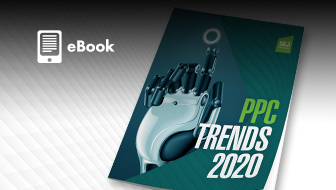Here’s Why Inclusive Web Design with SEO Wins 2020
Your role as an SEO is making webpages appear in search engine results at the precise moment for the exact people requesting them.
Advanced online marketing considers the webpage user experience to stick the landing, which takes them into the realm of web design.
The fun is figuring out who those people are so you can target them in search engines and web design decisions.


Most of the time businesses have a fairly good idea of who they are trying to sell products to and who might benefit from their services.
- What are the pieces we may be missing?
- Why is there a spike in website ADA accessibility lawsuits?
- Why study neuroscience and human behavior, behavioral economics and how people sort, search, and filter information?
- How can we apply hundreds of research studies to web design and marketing?
The People Layer of Search Engine Marketing
If you are an SEO professional, your primary directive is to make webpages rank high in search engines for specific search terms.
This is not always an easy task if the webpages are not designed to the proper W3C standards or maintained properly, creating performance issues that search engines notice.
What happens when a person clicks into well-ranked webpages?
Holistic UX and SEO is the practice of optimizing the whole user experience rather than treating some of its parts.
It has been around for nearly 20 years but not applied universally and inclusive design was even less heard of.

The holistic approach includes:
- Website accessibility.
- Information architecture.
- Human behavior.
- Social media marketing.
- Persuasive web design.
- Content writing.
The parts that people can either see, listen to or interact with using a computer, mobile or assistive device contain opportunities tucked inside for search engine marketers to explore.
What’s simmering behind understanding people as users, in addition to search engine bots, are page performance, browsers, operating systems, machine learning, and lots and lots of code of varying flavors.
This exploratory road has no end – which is why SEO will never die.
Digital marketers who play with conversions design and persuasive architecture wrestle it all into a small cell phone device experience.
And then, if you want to be hip for 2020, you look for the people you forgot to target in your marketing strategies, such as those with disabilities or minor impairments that make searching or interaction with web sites difficult without some assistance or assistive software or device.
